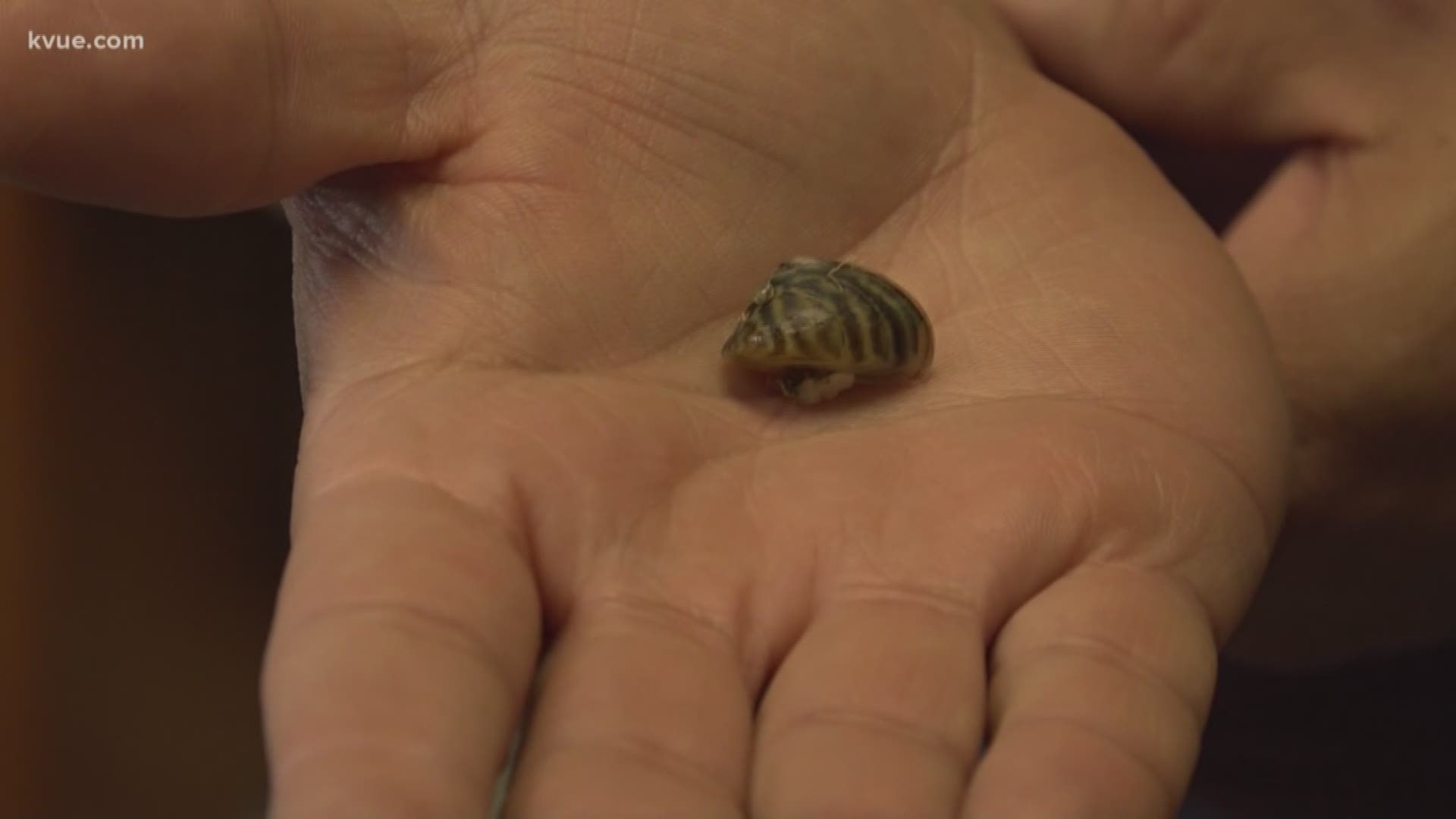GEORGETOWN, Texas – Zebra mussels have been found in Lake Georgetown, Texas Parks and Wildlife Department biologists confirm.
TPWD said biologists found zebra mussels larvae in routine water samples Oct. 27. A follow-up survey on Nov. 6 “revealed young settled zebra mussels attached to rocks along the shoreline.”
Wildlife officials say the invasive species can cause clogged water pipelines and can damage boats and motors.
And because they feed off plankton, the mussels can have a negative impact on fisheries and the ecosystem if there is no natural predator in the body of water.
Zebra mussels can spread when an infested boat enters another body of water that does not have zebra mussels.
The spread of zebra mussels (dead or alive) is illegal. Boaters are required to drain all water from their boat and onboard receptacles before leaving or approaching a body of fresh water in order to prevent zebra mussels from being transported to and from those bodies of water.
"If you leave your boat in the water for extended periods of time, in a lake that's infested, these zebra mussels will attach to your haul or to your prop or to your anchor lines," said Marcos Dejesus, TPWD fisheries biologist.
According to TPWD, the requirement to drain applies to all types and sizes of boats whether powered or not: personal watercraft, sailboats, kayaks/canoes or any other vessel used on public waters.
And because zebra mussels are sharp and can attach to rocks, it is recommended to wear shoes on lake beaches.
"They colonize by attaching to hard objects," Dejesus said. "If you have swimming beaches or any recreational areas that you would walk on barefoot, if they get encrusted on all the surfaces, they could cut you up really bad."
Michael Conner, who has been fishing on Lake Georgetown for nearly 40 years, said he saw zebra mussels for the first time recently when he was fishing at Stillhouse Hollow Lake. It feeds into Lake Georgetown.
"There was a cluster of about five or six," Conner said. "I showed them to my fishing buddy and he said, 'Yeah, those are zebra mussels."
TPWD said their biologists will work with the Brazos River Authority and U.S. Army Corps of Engineers to establish signage, monitor the spread of zebra mussels in the lake and downstream at Granger Lake. However, Dejesus said removing them is extremely difficult.
TPWD also said Monday that Lake Livingston along the Trinity River has also been infested with zebra mussels. Four Texas reservoirs have become infested with zebra mussels in 2017, including Lake Travis, and a total of 13 Texas lakes have zebra mussel infestations.

